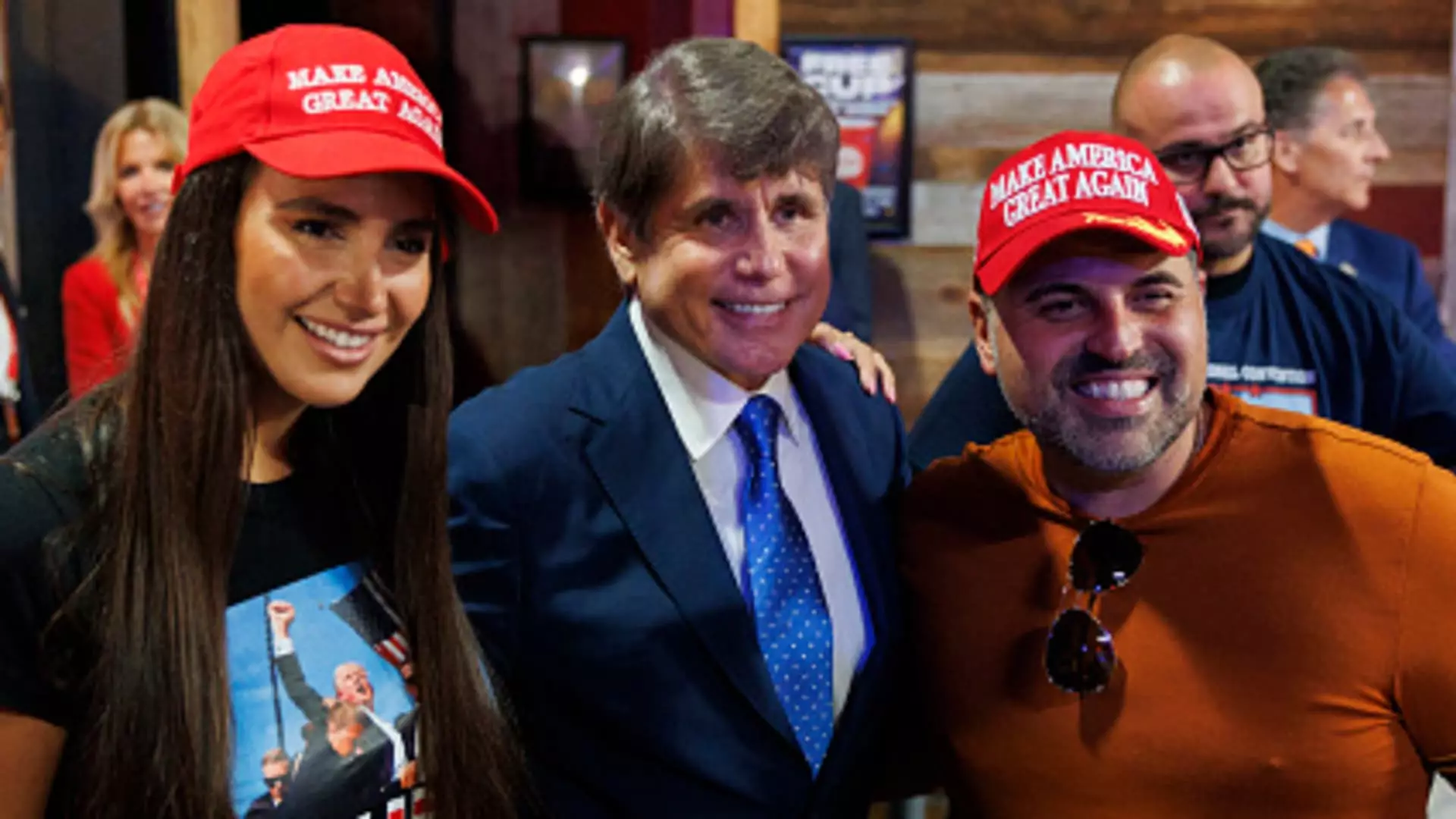The decision made by former President Donald Trump to pardon Rod Blagojevich, the ex-Governor of Illinois, marked a significant moment in the intersection of politics and justice. Blagojevich, a Democrat, had been enmeshed in a scandal that not only tarnished his own reputation but also spotlighted the endemic issue of corruption in political offices. His conviction in 2009 for attempting to sell a Senate seat previously held by Barack Obama signified a particularly brazen form of political malpractice, and with an eight-year prison sentence, he became a poster child for political corruption.
Trump’s assertion that Blagojevich was “a very fine person” highlights the complexities of image and morality in political pardon practices. The contrast between their public personas and the consequences of their actions raises troubling questions about accountability and justice. While many may debate the merits of such a pardon, the historical context, including the repeated calls for reform in Illinois politics, adds extra layers to the discussion.
Pardoning figures like Blagojevich can have far-reaching legal and political implications. Trump’s decision to grant a full pardon follows a commutation of Blagojevich’s 14-year sentence in 2020, suggesting a trajectory of leniency rarely seen for individuals embroiled in serious corruption charges. Critics, including a faction of Illinois Republican lawmakers, expressed their discontent regarding this pattern, especially given that several former governors in Illinois have faced incarceration for corruption-related offenses.
The argument against such pardons often pivots around the message it sends to the public. Rather than endorsing accountability, the action can be perceived as legitimizing a culture of corruption. In an environment where political integrity is consistently under scrutiny, offering reparative justice to those who have committed egregious acts undermines the very foundation of democratic governance.
Interestingly, Blagojevich’s tie to Trump extends beyond politics into the realm of entertainment. His appearance on the reality television show “The Celebrity Apprentice” during his legal troubles highlighted how media visibility can coalesce with political leniency. The blurring lines between entertainment, politics, and persuasion create an unusual narrative where personal relationships can influence judicial outcomes. Blagojevich’s history with Trump appears to reflect a mutual admiration that may have contributed to the latter’s favorable treatment.
Sorosky, Blagojevich’s lawyer, has noted the friendly relationship between the two men, a bond that transcends mere legal representation and delves into personal camaraderie. As we navigate the aftermath of Trump’s presidency, such connections drive the conversation about who gets redemption and why.
Ultimately, the pardon of Rod Blagojevich may reflect broader trends toward redefining power dynamics in American politics. Trump’s willingness to grant clemency raises essential questions about the intersection of justice and political allegiance. As discussions about political corruption and ethics evolve, it is crucial to monitor the implications of such pardons on public trust and the integrity of governance.
The saga of Blagojevich underlines the inherent contradictions in the political landscape, where past decisions, personal relations, and the quest for second chances collide. As society continues to grapple with these issues, instances like this will undoubtedly foster debate, prompting us to consider how we define ethical leadership in an age fraught with challenges to democratic values.



Leave a Reply